Related Research Articles
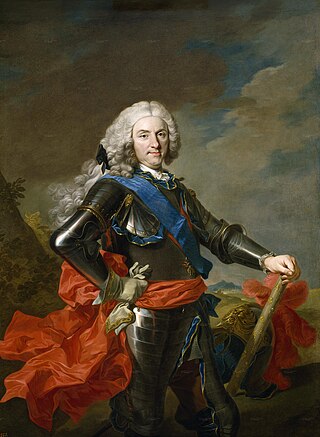
1724 (MDCCXXIV) was a leap year starting on Saturday of the Gregorian calendar and a leap year starting on Wednesday of the Julian calendar, the 1724th year of the Common Era (CE) and Anno Domini (AD) designations, the 724th year of the 2nd millennium, the 24th year of the 18th century, and the 5th year of the 1720s decade. As of the start of 1724, the Gregorian calendar was 11 days ahead of the Julian calendar, which remained in localized use until 1923.
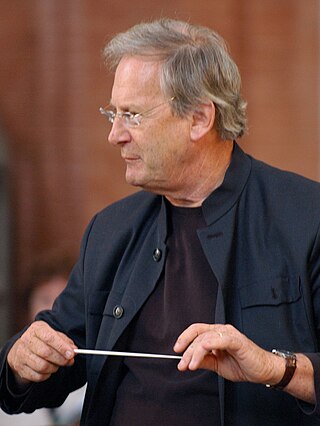
Sir John Eliot Gardiner is an English conductor, particularly known for his performances of the works of Johann Sebastian Bach, especially the Bach Cantata Pilgrimage of 2000, performing Bach's church cantatas in liturgical order in churches all over Europe, and New York City, with the Monteverdi Choir, and recording them at the locations.

Dame Carolyn Emma Kirkby, is an English soprano and early music specialist. She has sung on over 100 recordings.

Magdalena Kožená, Lady Rattle is a Czech mezzo-soprano.
Gerald Hunter Finley, is a Canadian bass-baritone opera singer.
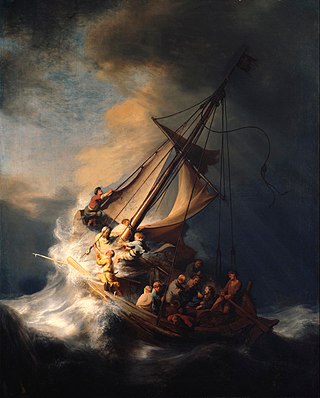
Jesus schläft, was soll ich hoffen?, BWV 81, is a church cantata by Johann Sebastian Bach. He composed it in 1724 in Leipzig for the fourth Sunday after Epiphany and first performed it on 30 January 1724.

Johann Sebastian Bach composed the church cantata Nun komm, der Heiden Heiland, BWV 61, in Weimar for the first Sunday in Advent, the Sunday which begins the liturgical year, and first performed it on 2 December 1714.
Klaus Mertens is a German bass and bass-baritone singer who is known especially for his interpretation of the complete works of Johann Sebastian Bach for bass voice.

Max van Egmond is a Dutch bass and baritone singer. He has focused on oratorio and Lied and is known for singing works of Johann Sebastian Bach. He was one of the pioneers of historically informed performance of Baroque and Renaissance music.
Dorothee Mields is a German soprano concert singer of Baroque and contemporary music.

Jan Kobow is a German classical tenor in concert, Lied, and Baroque opera.
Christopher Stephen Varcoe is an English classical bass-baritone singer, appearing internationally in opera and concert, known for Baroque and contemporary music and a notable singer of Lieder.
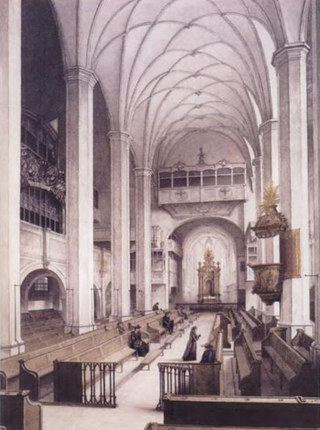
Johann Sebastian Bach composed the church cantata Herr Christ, der einge Gottessohn, BWV 96, in Leipzig for the 18th Sunday after Trinity and first performed it on 8 October 1724. The chorale cantata, part of Bach's second annual cycle, is based on the hymn in five stanzas "Herr Christ, der einig Gotts Sohn" by Elisabeth Cruciger, published in Eyn geystlich Gesangk Buchleyn in 1524.

Tim Mead is an English countertenor.
Carolyn Margaret Sampson is an English soprano in opera and concert. Specialising in historically informed performance, she has sung in Masaaki Suzuki's recording project of Bach cantatas and has appeared at the English National Opera.

Schlage doch, gewünschte Stunde, BWV 53, is an aria for alto, bells, strings and continuo. It was likely composed in the early 18th century, although its date of first performance is unknown. From the second half of the 18th century until the early 1950s the aria was attributed to Johann Sebastian Bach. In 1955, it was suggested by the Bach scholar Karl Anton that the aria's composer was more likely to be a member of Melchior Hoffmann's circle.
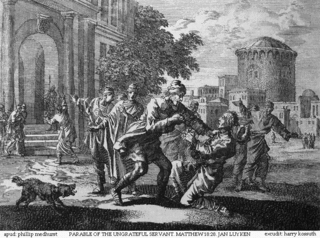
Johann Sebastian Bach composed the church cantata Mache dich, mein Geist, bereit, BWV 115, in Leipzig for the 22nd Sunday after Trinity and first performed it on 5 November 1724. The chorale cantata is based on the hymn by Johann Burchard Freystein (1695).

Johann Sebastian Bach composed the church cantata Wohl dem, der sich auf seinen Gott, BWV 139, in Leipzig for the 23rd Sunday after Trinity and first performed it on 12 November 1724. The chorale cantata is based on the hymn by Johann Christoph Rube (1692).

Johann Sebastian Bach composed the church cantata Es reißet euch ein schrecklich Ende, BWV 90, in Leipzig for the 25th Sunday after Trinity and first performed it on 14 November 1723.
David Cordier is an English countertenor. He made an international career based in Germany, and appeared both in concert and opera. While focused on roles by Handel such as Radamisto, he has also performed in contemporary opera, including works by Aribert Reimann and Péter Eötvös.
References
- 1 2 "William Towers (Counter-tenor) - Short Biography". Bach-cantatas.com. 6 October 2010. Retrieved 16 November 2012.
- ↑ Picard, Anna (July 2012). "Too hot to Handel (Buxton Festival Opera)". independent.co.uk. Retrieved 28 January 2013.
- ↑ Ashley, Tim (November 2005). "A Midsummer Night's Dream (Opera review)". The Guardian. Retrieved 31 October 2012.
- ↑ Littler, William. Canadian Opera Company.(Opera review). Opera Canada. Opera Canada Publications. 2010. 2 November 2012.